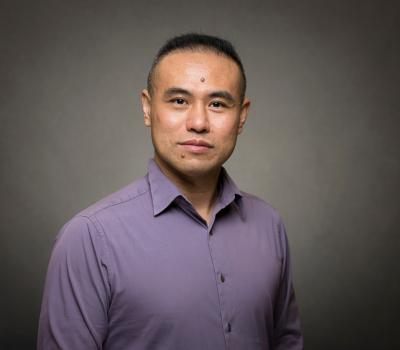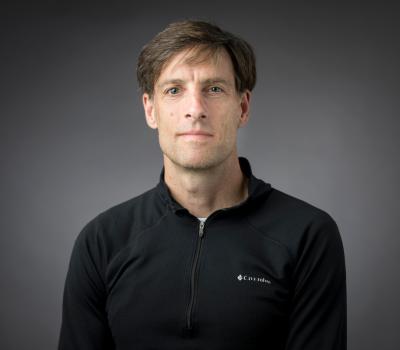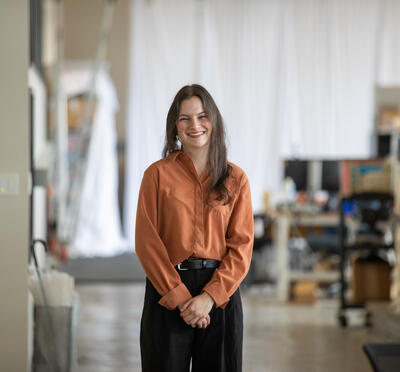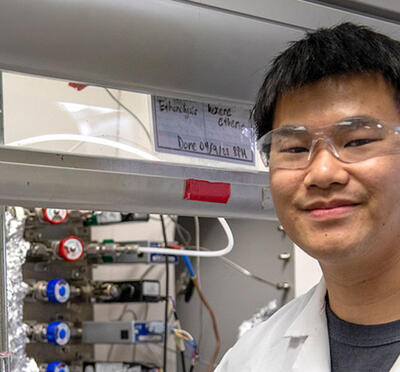Juniors Tucker Holstun and Yesh Godse are among 396 college students selected from approximately 5,000 potential candidates across the United States to receive the award for the 2020-2021 academic year.
The scholarships are awarded based on academic merit to college sophomores and juniors who exhibit intellectual intensity and exceptional promise of becoming research leaders and who show potential for significant contributions to research in their chosen fields, according to the scholarship program’s mission statement.
Holstun and Godse will each receive up to $7,500 for tuition, fees, books, and housing expenses.
TUCKER HOLSTUN, LITHIUM-ION BATTERIES
Holstun, a chemical engineering major and Honors College student from Portland, learned that he’d won the scholarship in an email from Oregon State’s Prestigious Scholarships office on March 27, at the end of spring break.
“Then I got an email from my advisor, and then I got flooded with emails from a bunch of current and past professors in chemical engineering,” he said.
Holstun works as a research assistant in the lab of Zhenxing Feng, an assistant professor of chemical engineering, focusing on developing surface coatings to increase the energy density of materials used to make lithium-ion batteries.
During an internship last summer at Argonne National Laboratory, just outside Chicago, Holstun studied theoretical aspects of battery technology and reviewed scientific literature in search of information about lithium-ion battery recycling techniques.
“Tucker expressed an interest in getting up to speed on our work before he arrived at the lab, so I sent him several basic background papers,” said Linda Gaines, a transportation systems analyst at Argonne and Holstun’s mentor. “He finished those and requested more, so I sent him more technical papers. When he arrived, he had a good grasp of our projects and finished two of them quickly. He then proceeded to help me develop an additional project to estimate material demand for electric vehicle batteries under several possible future scenarios. He demonstrated considerable ingenuity and initiative in completing that project.”
This summer, Holstun is slated for an internship at OnTo Technologies, a battery recycling startup in Bend, Oregon.
“The award is a huge encouragement,” Holstun said. “The great research experiences I’ve had in Professor Feng’s lab, my internship at Argonne, and now this recognition on top of everything, all reaffirm that I love doing research and I want to continue doing it. I am determined to find ways to lower the cost and increase the energy density of lithium-ion battery materials, which is a major roadblock to further expansion of renewable energy.”
YESH GODSE, INTELLIGENT ROBOTICS
Godse, a computer science major and Honors College student from the Portland metro area, concentrates on intelligent robotics — specifically using deep reinforcement learning (a subset of artificial intelligence) to control locomotion in humanoid robots.
“I want to solve control issues for complicated robot behaviors like walking, running, and actively balancing on two legs,” Godse said. “Controlling the motion of humanoid robots is far more complicated than it is for robots that ride on wheels, because robots with two legs aren’t self-stable and must deal with the dynamics of large impact forces. Locomotion challenges for humanoid robots is much more interesting to me.”
As a research assistant in the Dynamic Robotics Laboratory, Godse works on Cassie, the high-profile, two-legged robotic platform developed in the lab.
“Yesh is a self-driven, curious student who also likes to get his hands dirty with complex mechanical and software systems,” said Alan Fern, a professor of computer science and one of Godse’s advisors. “This is a rare combination of qualities that has led him to excel and become an important member of our research team. He is truly exceptional.”
Yesh says that when he first joined the lab, what most interested him, other than the big walking robot, were his lab mates. “They were experts in AI, robotics, control theory, and super advanced math,” he said. “I learned so much from them and they gave me so much support and guidance that I decided to craft my whole undergraduate experience around work in the lab. I added a math minor, signed up for relevant graduate level courses each term, and traded lots of club activities for time in the lab.”
At first, Godse was concerned that he was not diversifying his experiences enough, but once he started contributing to the lab in a meaningful way, everything else fell into place.
“I felt as though I’d overcome a high barrier to entry in an environment that holds people to very high standards,” Godse said. “I also co-authored a paper with one of my mentors, a doctoral student in the lab, and we expect to find out soon if it was accepted. I enjoyed the research so much, and I just immersed myself in work. Helping to write the paper and winning the Goldwater Scholarship are really just the fruits of this unorthodox path I took.”
Godse plans to jump straight into a robotics or computer science doctoral program after graduating in 2021.
“Yesh dove into undergraduate research from his first year at OSU. As his mentors will attest, he has made many important contributions to their groundbreaking work in reinforcement learning, and he continually seeks to learn new skills, even outside his prescribed major coursework,” said LeAnn Joy Adam, the OSU coordinator for prestigious scholarships. “He is well positioned to succeed in graduate school and is already engaging in graduate-level research and coursework. Tucker also engaged in undergraduate research at the first available opportunity. His mentors describe him as a fast learner, a determined and creative problem-solver who shows outstanding potential as a researcher.”
Oregon State has enjoyed a strong history of success with the Goldwater Scholarship, including in 2019 when all four of the university’s nominees were selected. Beginning in 2020, schools were permitted to nominate up to five students each year. Thirty-six Oregon State students have earned the Goldwater Scholarship since the award was first conferred in 1989.
From an estimated pool of over 5,000 college sophomores and juniors, 1,343 natural science, engineering, and mathematics students were nominated by 461 academic institutions to compete for the 2020 Goldwater Scholarships. Of the selected students who reported, 191 are men, 203 are women, and virtually all intend to obtain a doctoral degree. Fifty are majoring in mathematics and computer science majors, 287 in the natural sciences, and 59 in engineering. Many have published in leading journals and presented at professional society conferences.
Goldwater Scholars have impressive academic and research credentials that have garnered the attention of prestigious postgraduate fellowship programs. Goldwater Scholars have been awarded 93 Rhodes Scholarships, 146 Marshall Scholarships, 170 Churchill Scholarships, 109 Hertz Fellowships, and numerous other distinguished awards, including National Science Foundation Graduate Research Fellowships.
Students interested in applying for the Goldwater Scholarship, or faculty who would like to encourage students to apply, can contact the Prestigious Scholarships office for information about the application and nomination process.





